Lancia D50 #10 GP Pau Eugenio Castellotti CMC M-178 LE 1000

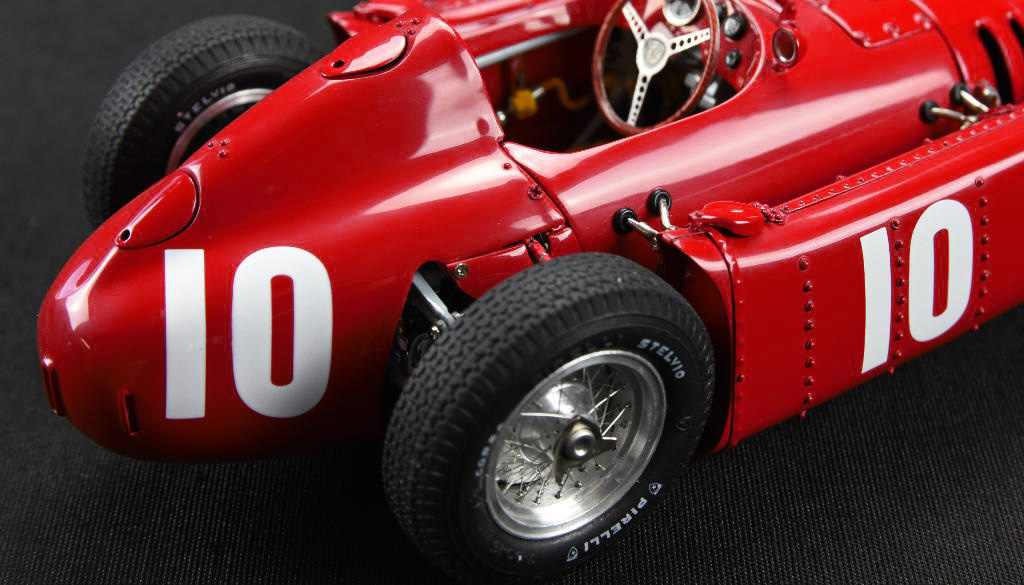
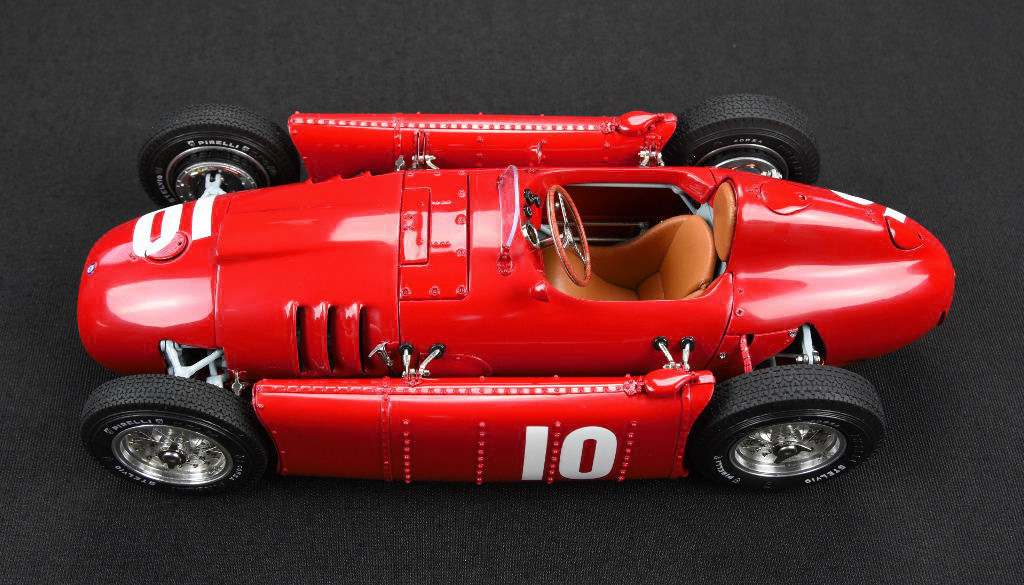
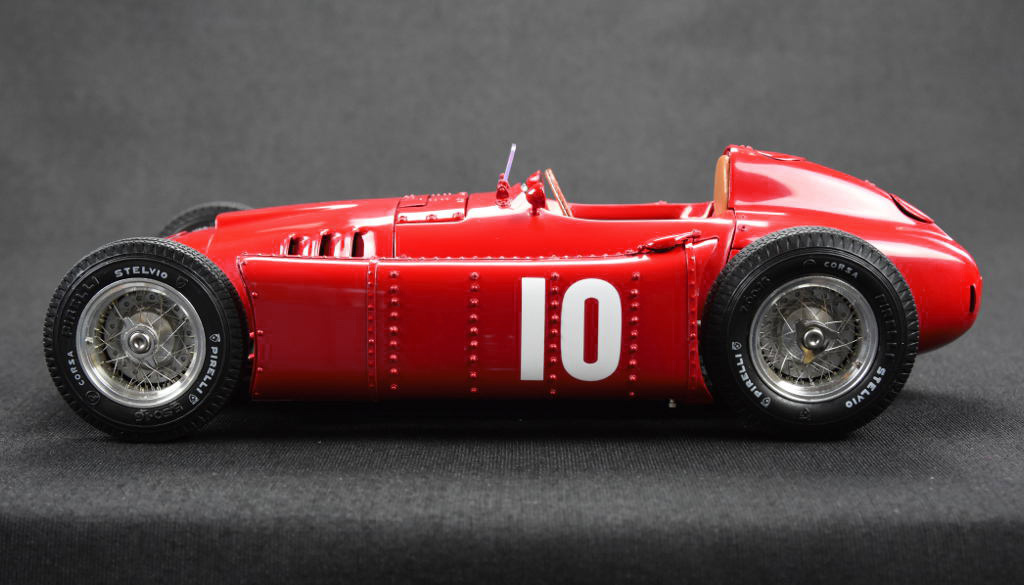
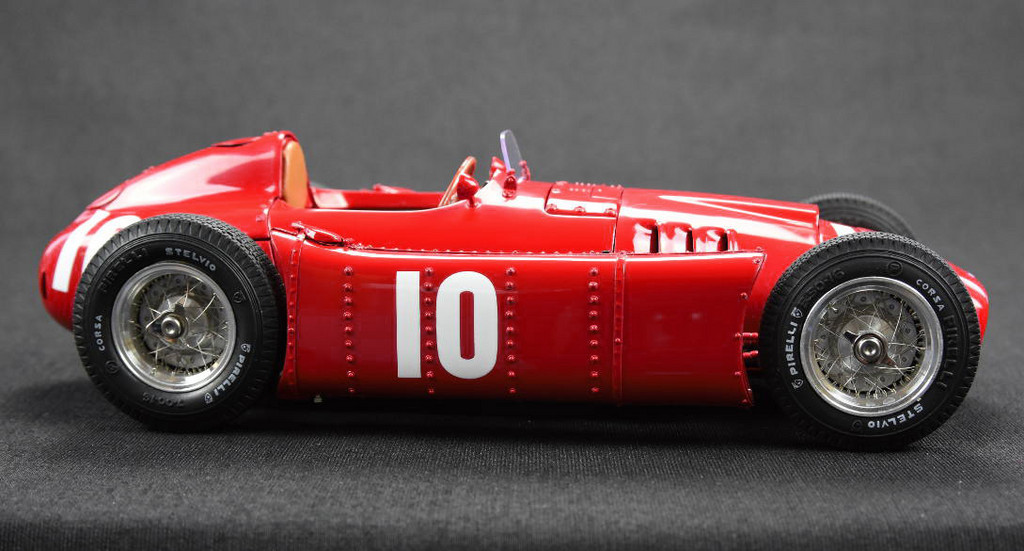
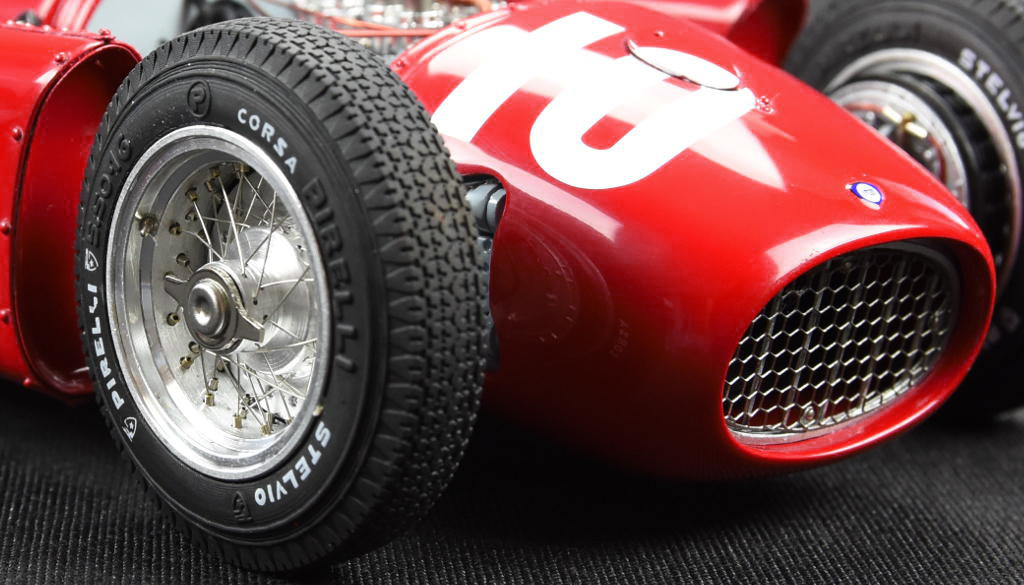
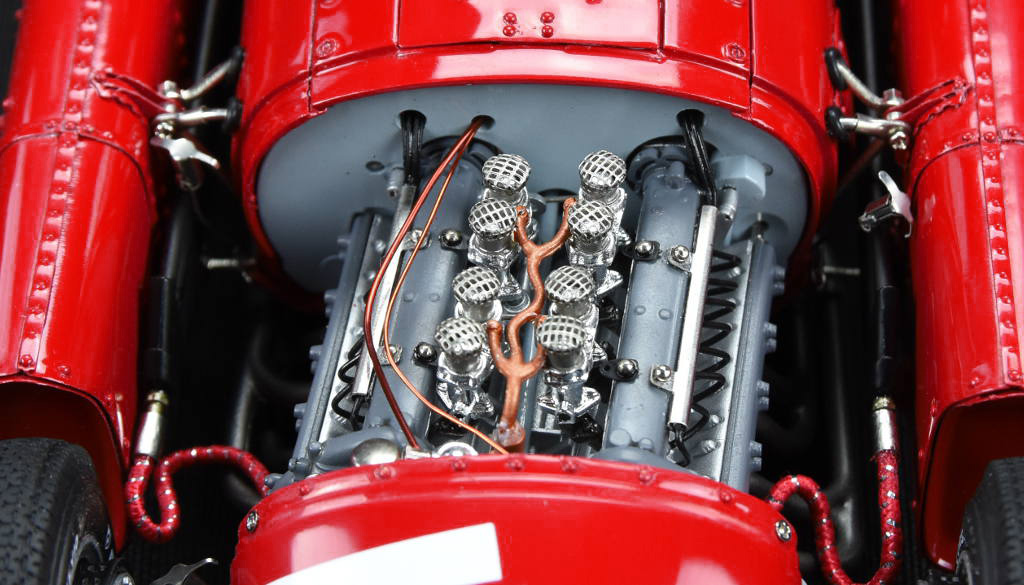
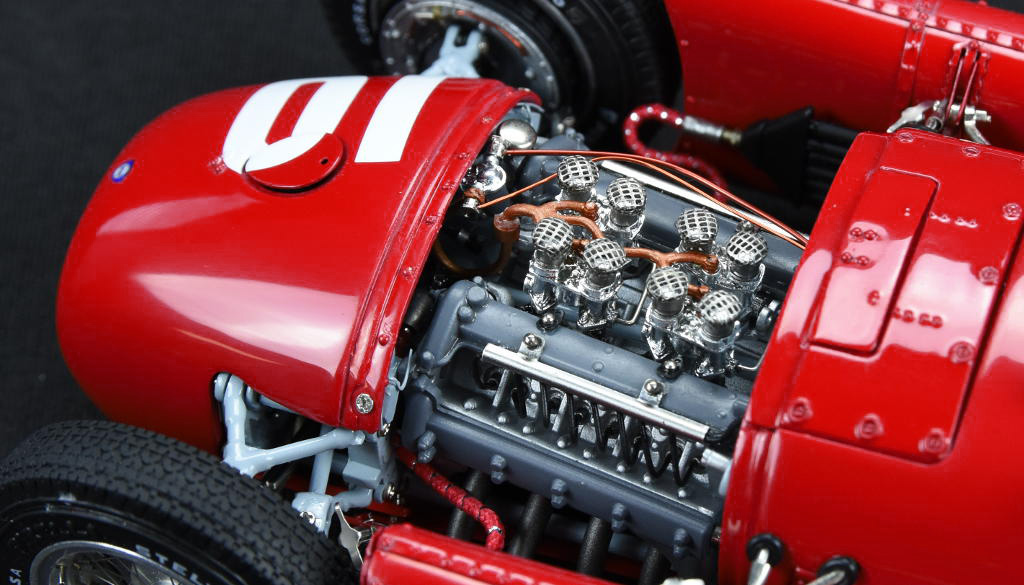
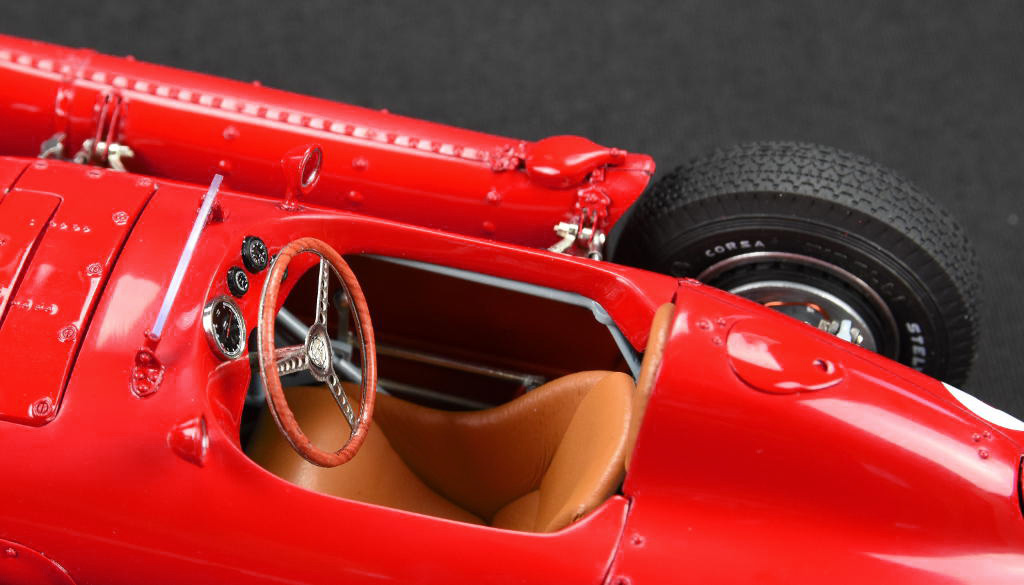

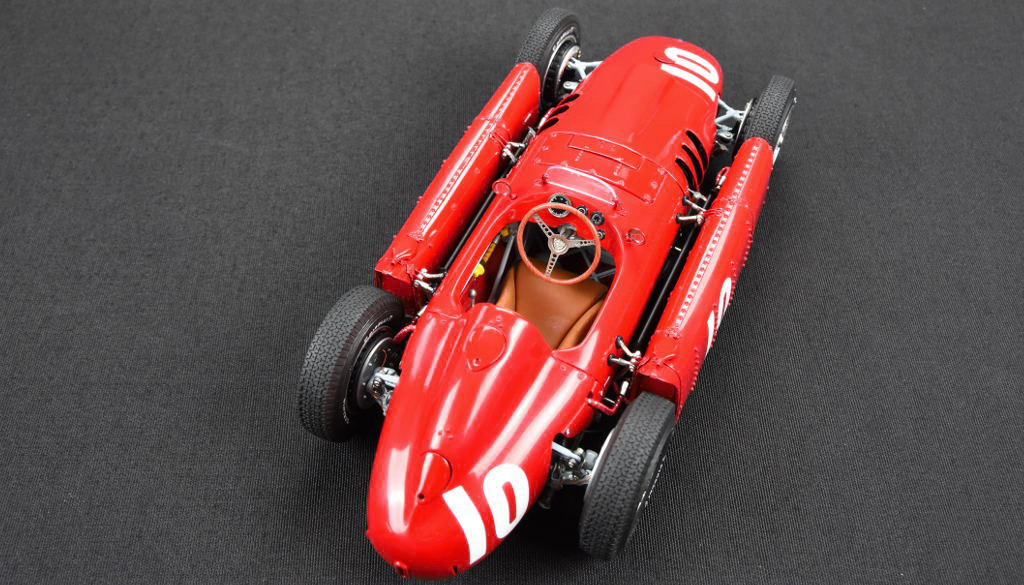
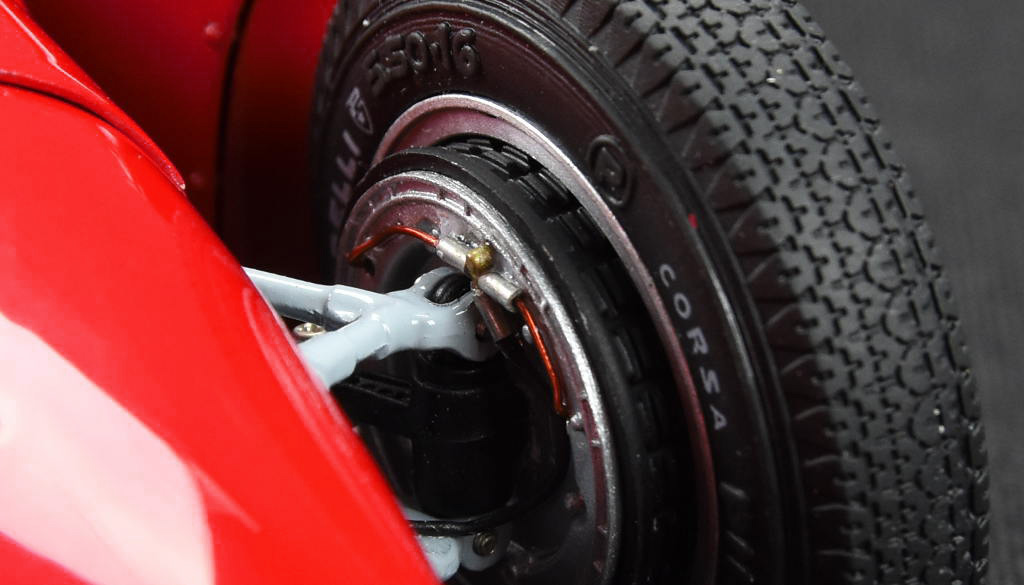
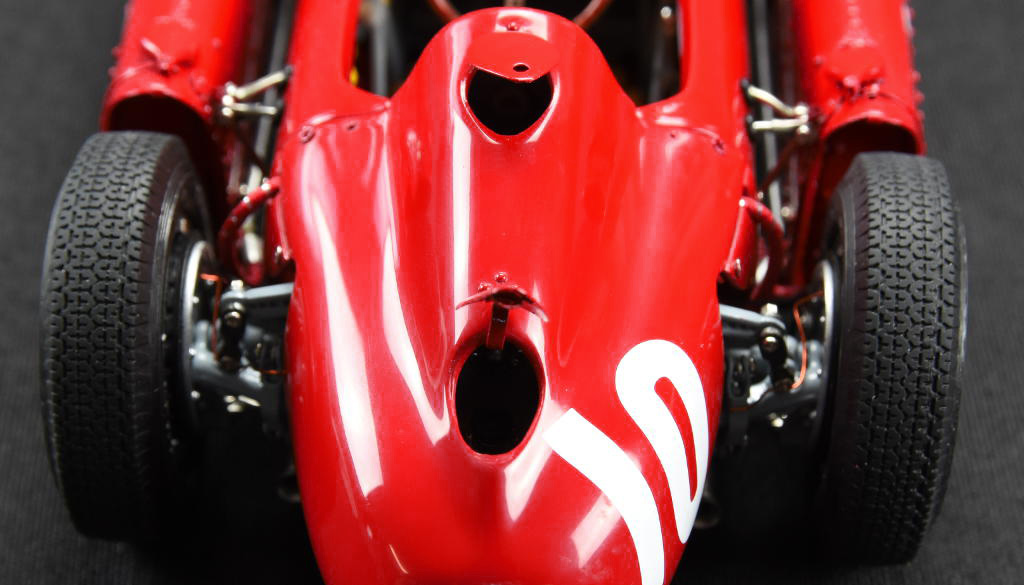

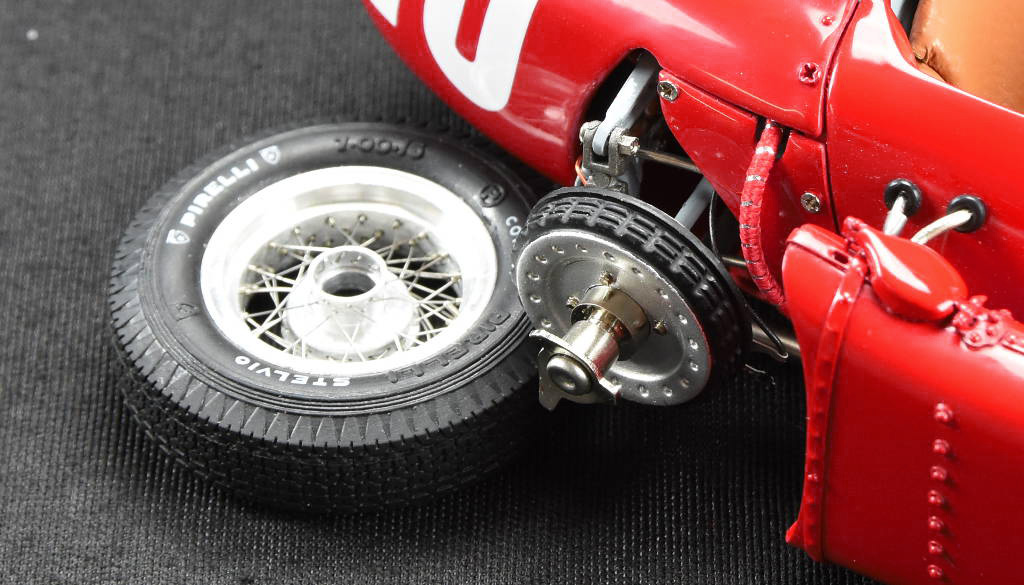
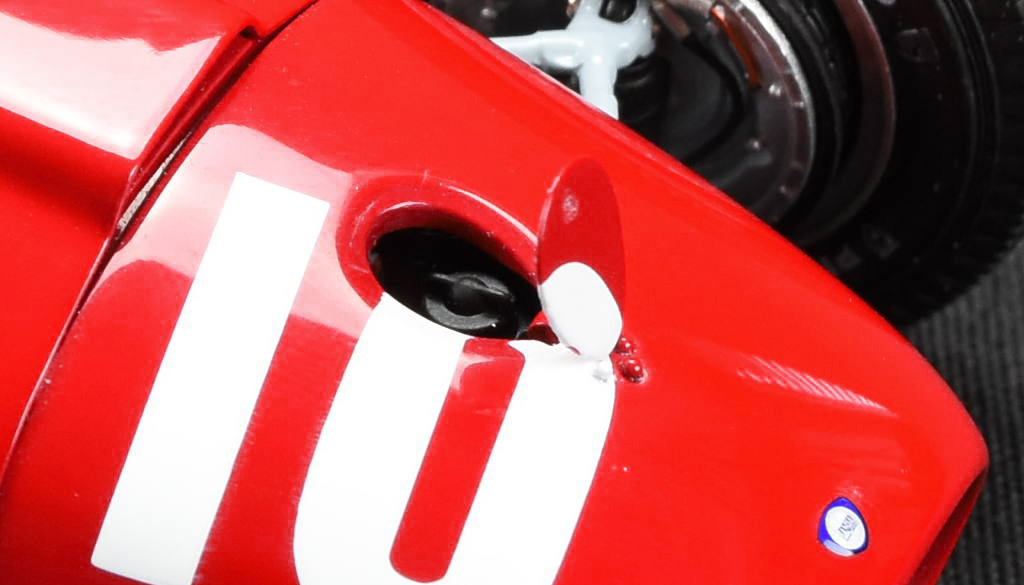
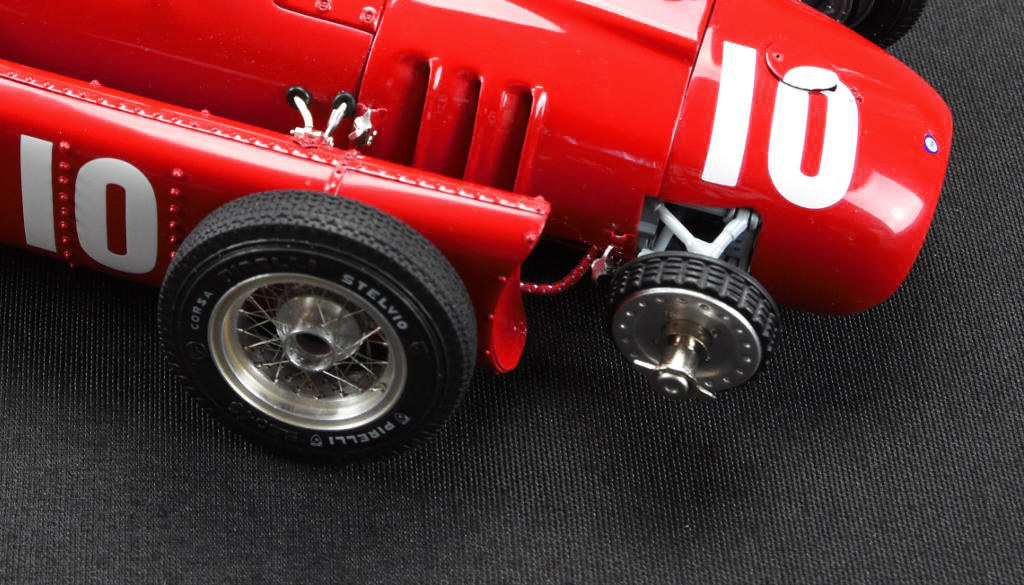
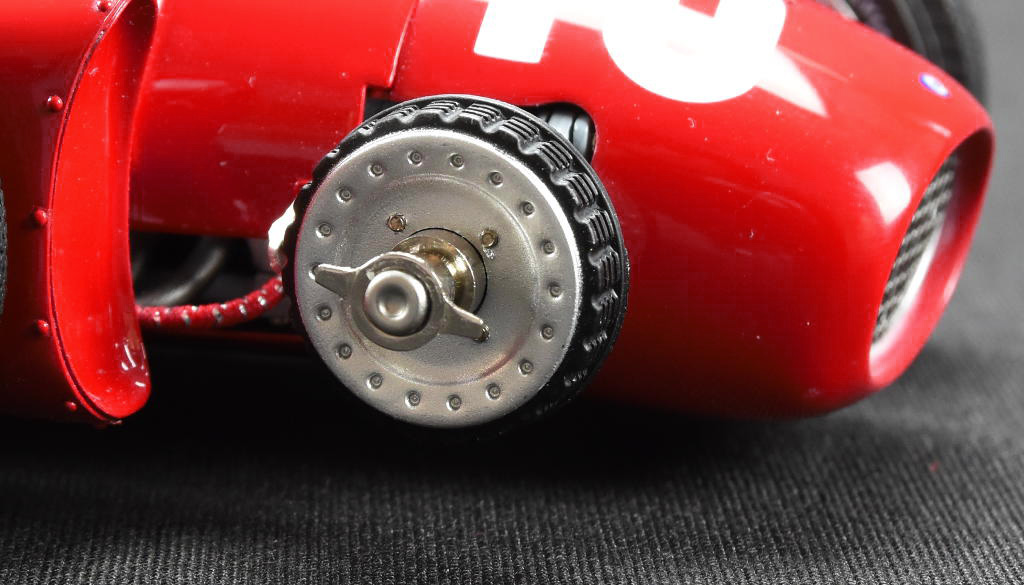


























































Product information "Lancia D50 #10 GP Pau Eugenio Castellotti CMC M-178 LE 1000"
Following a brief debut of the D50 at the Spanish GP in Barcelona, which was the last event of the 1954 season, Scuderia Lancia was busy preparing its test drives in Monza and Ospedaletti for the upcoming Formula One season. The Lancia team participated in the 1955 Grands Prix in Turin and Pau. Ascari won the race in Turin, Italy, whereas in France, with only two laps left to go before the finish line, a technical problem forced him to make a pit stop and yield the lead to Jean Behra, who won the race in a Maserati 250F. Still Ascari finished fifth. Both events, however, did not contribute points to the world championship, so Alberto stayed pointless despite the race successes.
After the qualifying session at Monaco GP, the Silver Arrows were the favorites. But the Mercedes pilots would fall victims to technical problems one after another during the race. In lap 80, while Alberto Ascari was leading the way, the last Silver Arrow that was still remaining on the track and manned by Stirling Moss was caught in an engine failure. Ascari´s lead, however, did not last long, either. He failed to slow down for the harbor chicane – a driving error that forced him to run over the barriers beside the race track and catapult his D50 over half a dozen hay bales to make a devil-may-dare plunge into the waters of the Monaco harbor. Alberto Ascari survived this potentially fatal crash due to a cool-headed, timely release of himself from the sinking car. The Greek shipping mogul Aristoteles Onassis and his yacht crew came to the rescue of Ascari and provided the first aid for his bruises from the crash.
The victory of the Monaco GP went to Maurice Trintignant in a Ferrari 625. Eugenio Castellotti finished second in a Lancia D50, whereas Jean Behra came third in a Maserati 250F.
Instead to enjoy a bath in the crowd because of a nearly safely seemed 1st place, Ascari had to take an involuntary bath in the harbor basin.
A few days later, motorsports fans all over the world were shocked and dismayed to learn the death of their beloved and talented two-time world champion. Alberto Ascari died in a private test drive of a friend’s Ferrari in Monza.
MODEL DESCRIPTION
• Metal precision model hand-built from 1,598 parts
• Detachable and lockable engine hood
• Hinged adjustable screen
• Realistic replica of the V8 engine complete with pipes and cabling
• Metal exhaust pipes
• Triangular steering axle with shock absorbers, front suspension with
wishbones, transverse leaf spring, all made of metal
• Rear suspension with De-Dion-tube, transverse leaf spring, longitudinal arms
and inboard dampers, all made of metal
• Radiator grille hand-made of stainless steel with metal supports
• Highly-detailed replication of the cooling system
• Highly-detailed fuel and oil circulation
• Authentically-replicated hinged fuel caps
• Authentically-replicated hinged oil-filler cap
• Upholstered leather-covered driver seat and head rest
• Perfectly-crafted wheels with stainless-steel spokes and nipples on an alloy rim
• Authentically-replicated central locking nuts with right-/left-handed threads
• Elegant finish with a brilliant paint in original color
• Starting number 26 printed by the tampon printing method
Special feature as accessory: Booster-Trolley with separate assist-start device
TECHNICAL DATA OF THE ORIGINAL VEHICLE
• Monoposto built on a tubular frame with free-standing wheels
• 2.5-litre V8 engine as a stressed member of the chassis
• Two valves per cylinder controlled by two overhead camshafts
• Dry sump oil lubrication
• Mixture preparation with four Solex PII double carburetors
• Dual ignition (two plugs per cylinder)
• Five-speed manual gearbox installed behind the driver
